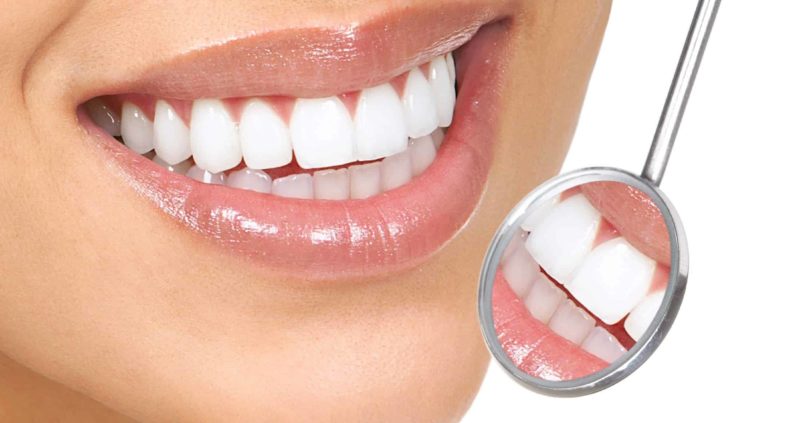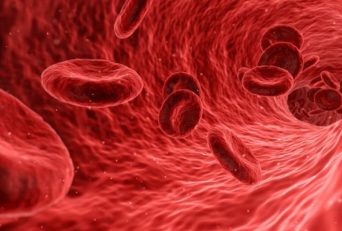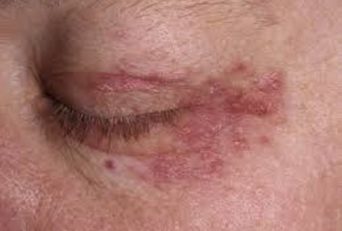Gingival Hyperplasia is a medical condition in which there is an enlargement or overgrowth of the gum tissues around the neck of the teeth. It is also known as gingiva because it is a condition of increment of the gingival tissues in size.
The term overgrowth can sometimes is used instead of the term hyperplasia.
Gingival overgrowth, gingival hypertrophy, and hypertrophic gingivitis are other names of Gingival Hyperplasia.The condition of Gingival Hyperplasia is often seen in children who are diagnosed with epilepsy.
Gingival Hyperplasia is a rare condition and can also be congenital.
There are different types of Gingival Hyperplasia but there are two types which are the most important ones, and they are –
- Gingival Hyperplasia induced by different medication
- Gingival Hyperplasia induced by inflammatory disorders.
But, before we proceed to the different types of Gingival Hyperplasia it is important to understand the difference between hyperplasia and hypertrophy.
These terms are often confused by similar terms, but they are different.
A condition in which cells in the gums are increased in numbers is called as Hyperplasia. While in Hypertrophy the cells in the gums are constant in number but their size is increased. This is the reason why specialists often use the term ‘Gingival enlargement’ for diagnosis purpose instead of using the above two terms.
Table of Contents
Types of Gingival Hyperplasia
In medical term, there are five different types of Gingival Hyperplasia. Determining the type of Gingival Hyperplasia is very important because every type has its cause. Once the cause and type are known then according to that proper treatment can be applied.
The five different type of Gingival Hyperplasia can be given as –
1. Gingival Hyperplasia Associated With Inflammation
Gingival enlargement may result from acute or chronic inflammatory changes. It is observed that it can be localized or generalized and is caused mainly when plague (collection of food, bacteria, and debris) accumulates on the teeth.
2. Gingival Hyperplasia Induced By Different Medication
Certain medications can also cause gingival enlargement. Drugs like cardiovascular drugs nifedipine can cause gingival enlargement.
It is a serious problem, if not treated on time then it can lead to the problem of tooth eruption and alignment.
3. Gingival Hyperplasia Associated With Different Systematic Disease
There are different physiological or systematic condition which triggers the gingival enlargement such as, pregnancy, hormonal imbalances, puberty, and leukemia.
4. Neoplastic Gingival Hyperplasia
The benign or malignant tumors are also responsible for causing gingival enlargement. Surgical treatment is applied to this type of gingival enlargement.
5. False Gingival Hyperplasia
As the name itself expresses that false enlargements are a condition in which enlargement do not originate from gingiva but underlying tissues like bone. In this condition the gingiva is healthy, and its size is also normal.
Symptoms of Gingival Hyperplasia
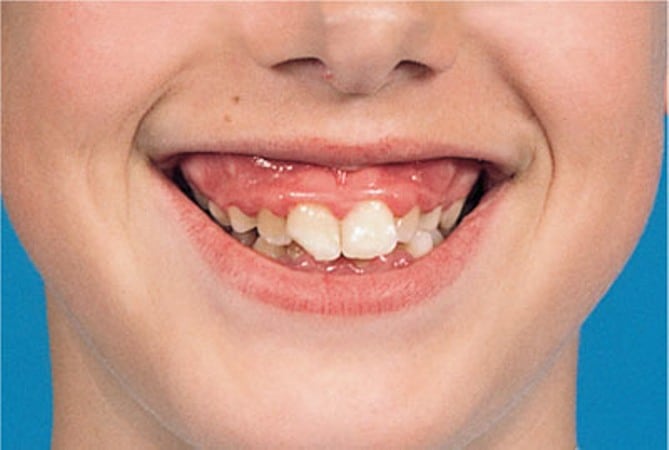
There are many common symptoms of Gingival Hyperplasia listed below –
a. In the majority of the cases, there are no symptoms seen in the condition of Gingival Hyperplasia except for the gingival enlargement.
b. When Gingival Hyperplasia is caused due to inadequate oral hygiene, then following symptoms are seen –
- Gingival enlargement
- Inflammation in the affected area
- Building of dental plaque and pushing into the gums
- The gums are tender when touched
- Bleeding can be seen in gums
- The areas that are most affected are the interdental spaces and the labial gingival mucosa.
In the case of gum overgrowth, the teeth might get covered by overgrown gum tissues.
c. If the Gingival Hyperplasia is caused due to the administration of different medication the following symptoms are observed –
- Gingival enlargement
- Swollen and firm gums
- Gums are not tender when touched
- Gums develop pink color
- There is no bleeding in the gums
- Gums overgrow to cover the crown of the teeth leading to periodontal disease
- This overgrowth of gums can cause the eruption of the new teeth and can even cause problem in alignment
d. In case of congenital Gingival Hyperplasia, the following symptoms are seen –
- The inflammation can be observed only in a part of the gingiva, or it may be generalized
- The gums when touched are firm and also pink in color
- There might be overgrowth of the gums which may cover the teeth leading to displacement of new teeth
Causes Of Gingival Hyperplasia
In most of the cases, the cause of the Gingival Hyperplasia is unknown. The gingivitis can be localized or generalized, and the affected tissues (gums) can be inflamed.
The inflamed tissues (gingivitis) or gums are red, tender, and shiny and bleed easily. While, the non-inflamed gingival enlargement are dark red or purple, soft and firm and bleeds easily.
However, the specific causes of Gingival Hyperplasia are ––
- Inflammation of the gums or gingivitis is the common cause of Gingival Hyperplasia.
- Difficulty in speaking and chewing accompanied with bad breathe.
- Poor oral or dental hygiene can result in bacterial plaques, gingivitis, and periodontal disease.
- Certain habits like smoking, mouth breathing can lead to Gingival Hyperplasia.
- Sometimes, overcrowded teeth can also cause Gingival Hyperplasia.
- A systematic disease like diabetes and HIV infection also causes Gingival Hyperplasia to occur.
- Gingival Hyperplasia is also caused by nickel accumulation and proliferation of epithelial cells.
- Hormonal changing states like pregnancy and puberty.
- Nutritional deficiency especially Vitamin C deficiency.
- Systematic medical conditions like leukemia, pyogenic granuloma, granulomatosis, aplastic anemia, sarcoidosis, benign or malign cancerous growth.
- Certain medications like antibiotics, antidepressants, cyclosporine, and calcium channel blocking agents – nifedipine and amlodipine.
- Genetic conditions such as hereditary fibromatosis, I-cell disease, etc.
- Hereditary transmission can also sometimes cause Gingival Hyperplasia.
- A metabolic disease like fetal valproate syndrome.
- False gingivitis enlargement occurs when a part of bone or teeth is detached and causing modifications.
Once the symptoms are observed it is advised to maintain a proper oral hygiene and to visit a doctor before the condition is worsening.
Diagnosis And Treatment Of Gingival Hyperplasia
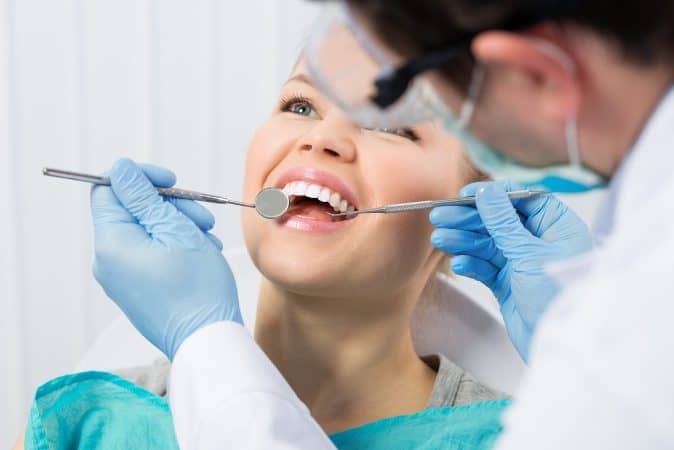
As seen there can be various reasons for the Gingival Hyperplasia; it is important to receive the proper diagnosis to know the underlying cause behind it. A biopsy is done necessarily to rule out the pathological conditions.
If the cause of Gingival Hyperplasia is inflammation, then periodontal therapy and improved oral hygiene are needed.
If the cause of Gingival Hyperplasia is certain medication, then it is recommended to consult a physician. It is also advised to stop or change the medication to stop the overgrowth of the tissues.
Stopping or changing the medication will not be sufficient enough to treat gingival hyperplasia; a proper medical treatment is also required.
However, these are the most common treatment and changes to do with gingival hyperplasia.
1. Maintain A Proper Oral Hygiene
- Through tooth brushing
- Regular dental flossing
- Removal of dental plaque through professional dental cleaning
- Use antiseptic mouthwash such as chlorhexidine
2. Opt For Dental Treatments For Periodontal Disease
- Professional debridement with root planing and scaling
3. Surgical Removal
- Gingivectomy is a surgical treatment for removing the problem of gingival hyperplasia. It is done with a scalpel or laser.
- However, if the cause is not treated properly there is a chance that the enlargement problem will reoccur and surgery will have to be performed many times.
- Also, you will have to clean the areas every three months to limit the effects of inflammation on the soft tissues.
4.Carbon Dioxide Laser Therapy
Carbon dioxide laser therapy can also be a solution for treating gingival hyperplasia. This therapy also reduces the chance of postoperative bleeding.
5. Drug-Induced Gingival Hyperplasia
In the case of drug-induced gingival hyperplasia, it is advised to stop taking the medication or should choose alternative medications.
- For example, instead of taking cyclosporine you can opt for tacrolimus. The effect of gingival overgrowth is reduced in the case of tacrolimus, however; the toxicity to the renal system is same in both the cases of the drugs.
- For treatment of epilepsy, the commonly used drug is phenytoin.
6. Taking proper treatment of systemic disease to avoid the development of gingival hyperplasia in the first place.
7. Ultrasonic treatments also help in the condition of gingival hyperplasia.
8. To prevent or treat secondary infection, antibiotic therapy is recommended.
Prevention Of Gingival Hyperplasia
It is truly said that prevention is better than cure! Here are few things to prevent the problem of Gingival Hyperplasia –
a. The foremost thing to keep in mind is to maintain a proper oral hygiene.
b. By oral hygiene, it doesn’t mean to take care of only the teeth but also the whole mouth. Always clean your mouth and check if any food residue has stuck to the gums.
c. If it is a case of drug-induced gingival hyperplasia, then you must stop taking the medications and should opt for alternative drugs for reducing its effects on the gums.
d. Avoid intake of foods with sugar content because they can trigger the growth in case of gingival hyperplasia.
e. Children are most affected by gingival hyperplasia as they are habituated of eating sweets, and they also don’t take proper care of their oral hygiene. It is recommended to maintain oral cleanliness when it comes to children.
f. The condition of gingival hyperplasia affects both human and animals. Especially, some breeds of dogs. So, it is advised to take your pets to a veterinary doctor for regular checkups and dental cleaning.
g. When suffering from gingival hyperplasia, always choose home remedies for treatment over synthetic drugs.
Although, if the condition of gingival hyperplasia is worsened then you might have to go through a surgery to remove the enlargement of gingivitis.
Natural Remedies For Gingival Hyperplasia
Though there are many medical options for treating gingival hyperplasia still, there are various natural remedies you can try out at home.
1. Eucalyptus Oil
Eucalyptus oil is known as an effective herbal remedy against gingival hyperplasia. You can prepare a mouthwash using eucalyptus oil at home.
Mix a few drops of eucalyptus oil in a glass of water. You this herbal solution to gargle many times a day. But it is advised not to swallow this solution as eucalyptus oil can be toxic if taken orally.
2. Cloves
Cloves have anti-inflammatory and strong analgesic properties. Chew two-three cloves three times a day, or you can also mix clove oil with water and rinse your mouth with this solution twice a day.
3. Green tea
Green tea possess anti-oxidant and anti-inflammatory properties, and it also destroys the bacteria responsible for gingival hyperplasia. Drink three-four cups of green tea daily.
4. Turmeric
Turmeric also exhibits anti-inflammatory and anti-oxidant properties, and it also destroys the bacteria responsible for inflammation. Put some turmeric powder on your toothbrush and brush your teeth with it twice a day.
5. Saline Mouthwash
Mix half teaspoon of salt in a glass of lukewarm water. Wash your mouth with this solution two-three times a day.
6. Baking Soda
Mix baking soda and water to make a thick paste. Put this paste on your toothbrush and brush your teeth two or three times a day.
7. Lemon Juice
Squeeze one lemon into a glass of warm water. Rinse your mouth with this solution after brushing your teeth in the morning. If you are unable to bear the acidic taste of lemon, then use half lemon instead of one.
8. Aloe Vera
Take an aloe vera leaf and slice out the gel from it. Apply this gel to the affected gum area. Wash your mouth afterward if you want to.
9. Tea Tree Oil
Add few drops of tea tree oil in your regular toothpaste. Brush your teeth with this mixture but make sure you don’t swallow it because tea tree oil is highly toxic if swallowed.
10. Guava leaves
Add few washed guava into a pan full of water. Boil it until the water level is halved. Strain the liquid and let it cool. Rinse your mouth with this solution two-three times a day.
11. Sage
Sage has anti-bacterial and anti-inflammatory properties. It also cures the infection and reduces the swelling of gums. Add sage to water and boil it for 10-15 minutes. Strain the liquid and let it cool. Rinse your mouth with this liquid two-three times a day.
12. Mustard Oil And Salt Paste
Add few drops of mustard oil in half teaspoon of salt to make a thick paste. Using this paste rub your affected gums gently. Rinse your mouth with warm water afterward. Repeat this process three times daily.
13. Diet
It is very important to have a proper diet plan for treating gingival hyperplasia. Limit your intake of refined sugar and increase the intake of vitamins rich foods especially, food with high Vitamin C content.
Food such as bananas, strawberries, radish, kiwifruit, broccoli, and leafy vegetables are recommended to eat.
All the above remedies are simple and natural. These remedies will not only help to get rid of gingival hyperplasia but will also prevent it from taking the form of periodontal disease.
If gingival hyperplasia is in the early stage, then it can be easily cured by any home remedies mentioned above.
However, it is highly recommended to visit a doctor to know the severity of gingival hyperplasia before treating it at home. Once the cause and severity are known, then you can decide for the treatment to be applied.
FAQs Eelated To Gingival Hyperplasia
Q1. Which Medications Can Cause Gingival Hyperplasia?
Ans. The most common drugs that cause the risk of Gingival Hyperplasia are –
- Cyclosporine – It is an immunosuppressant medication helps to prevent organ rejection after a transplant. It is also utilized in the treatment of other immune-mediated conditions like psoriasis, atopic dermatitis, nephritic syndrome, and rheumatoid arthritis.
- Phenytoin – It is an anticonvulsant medication used in treating various types of seizures and convulsions.
- Calcium channel blockers – It is a class of cardiovascular drugs used to manage the conditions like hypertension, chest pains, and irregular heartbeats. Commonly prescribed drugs include nifedipine, verapamil, and amlodipine.
Q2. What Are My chances Of Developing Gingival Hyperplasia If I Am Taking One Of The Medications Mentioned Above?
Ans. In the case of drug-induced, the chances of developing Gingival Hyperplasia are estimated to be 50% when you are in long-term use of phenytoin.
For cyclosporine, it is estimated to be 25-30% in adults and about 70% in children. For calcium channel blockers like nifedipine, the risk of Gingival Hyperplasia is highest with a percentage of 6-15%.
Q3. Is Gingival Hyperplasia Depends On The Dose Of My Medication?
Ans. Poor oral hygiene (plaque present in your mouth) is a big issue rather than the dose of the medication.
Q4. What Should I Do If I Notice Gums Enlargement In My Mouth?
Ans. First of all, you should fix and appointment with your dentist for an evaluation. In most of the cases, a thorough medical history and oral examination can readily explain the cause of gingival enlargement.
But in rare cases, further medical tests like blood sample studies or a biopsy may be necessary to know the exact cause of gingival enlargement.
Q5. Is The Condition Of Gingival Hyperplasia Contagious?
Ans. No, the condition of gingival hyperplasia is not contagious. This condition is not infectious and you cannot catch it from anyone and cannot pass it on.
Q6. What Should I Do To Reduce The Severity Of Gingival Hyperplasia?
Ans. The foremost thing to do is to maintain a proper oral hygiene on a daily basis as it will reduce the risk of developing gingival hyperplasia in the first place. It is advised to visit your dentist for checkups on a regular basis.
If it the case of medication-induced, then you should consult your doctors to change the medications. You can also opt for home remedies mentioned above to reduce the severity of gingival hyperplasia.
But, if the condition is severe and cannot be taken care of your own then you might have to go through surgery.
Conclusion
Gingival hyperplasia is treated best when the underlying cause is known. To prevent the problem of gingival hyperplasia from occurring visit your dentist twice a year and maintain a proper oral hygiene.
Taking oral seriously will not only prevent gingival hyperplasia but all types of gum problems.
Always use a proper toothbrush, floss, and mouthwash. However, if diagnosed with gingival hyperplasia use natural remedies to get rid of it but consult a doctor before for knowing its severity.

